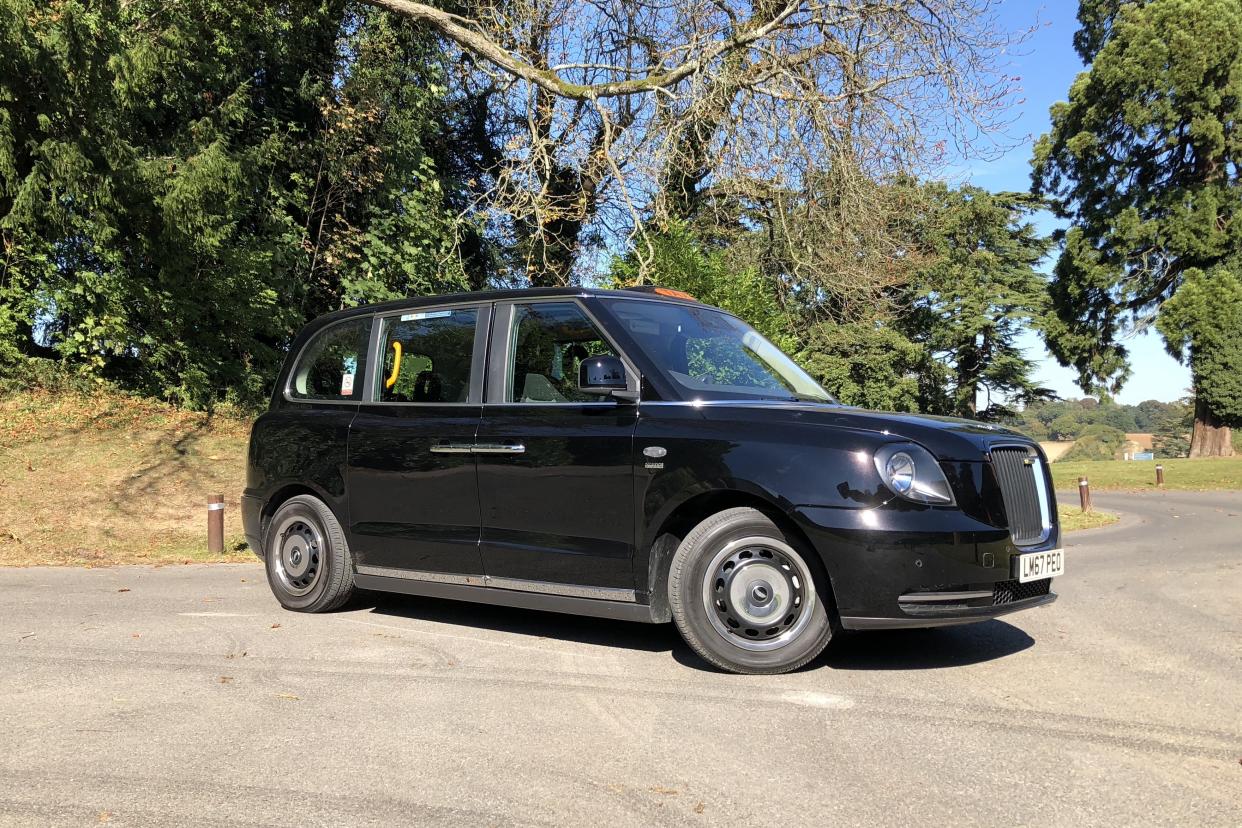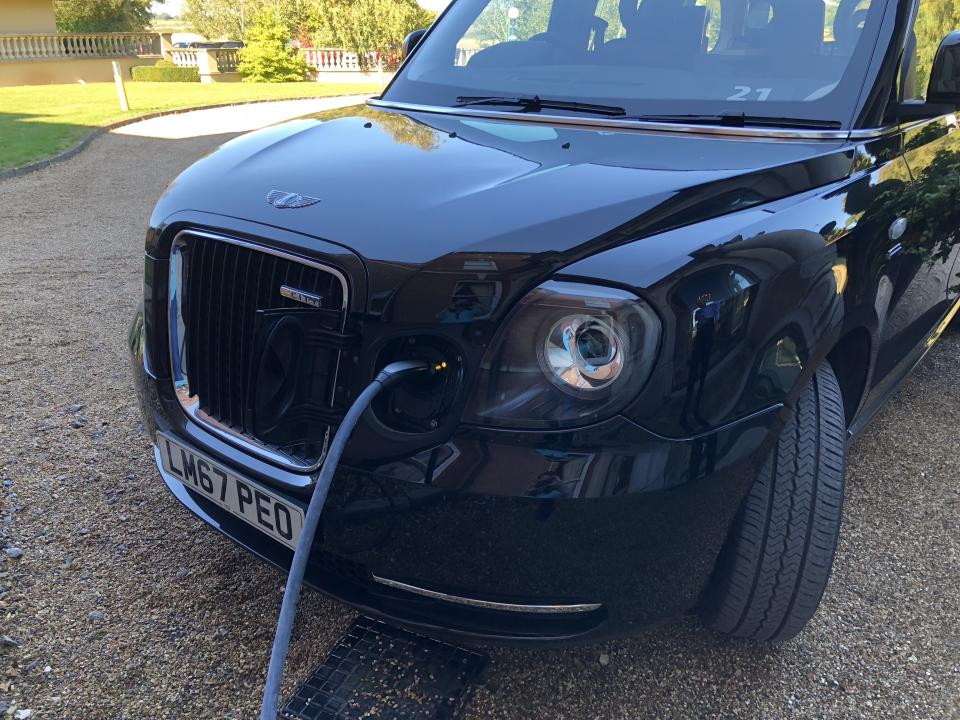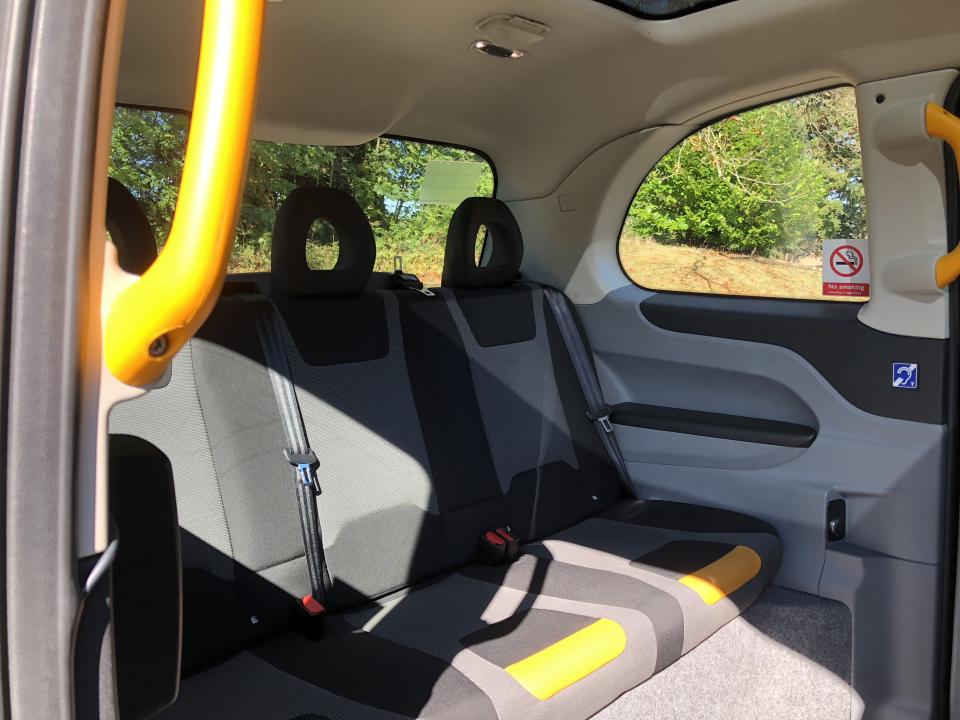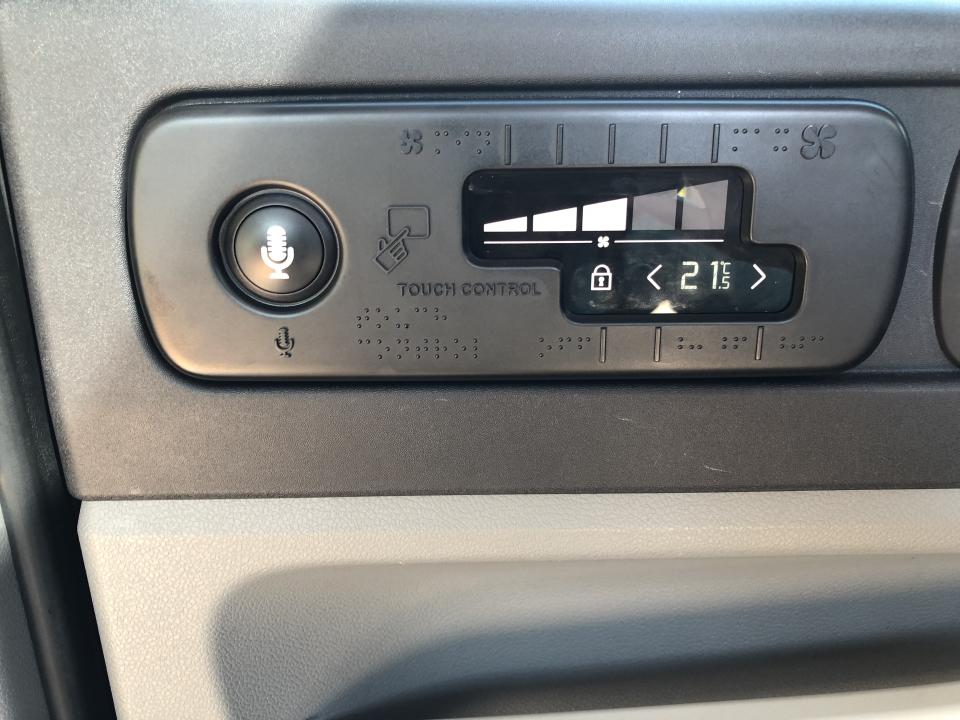London’s iconic black cab gets a makeover – take a look inside

When you think of London, red phone boxes and black cabs probably spring to mind. But phone boxes are going out of fashion thanks to the prevalence of mobile phones, and black cabs are facing similar threats as diesel falls out of favour.
Instead of letting the diesel-fuelled taxis fall by the wayside amid the rise in electric vehicles, London’s iconic black cabs have got a full makeover.
At first glance, you probably wouldn’t be able to spot any changes. They’re still black with the same distinctive shape. But they’re very different on the inside, boasting USB charging ports, expansive sunroofs, new electric batteries and easy-to-reach card readers for ride payments.
Unlike the old versions that dominate central London roads, the new TX e-City is powered by a mix of electric and petrol fuel. The hybrid taxis are made by Geely Automobile (0175.HK), the Chinese conglomerate, under its black cab brand LEVC.
Eddie Martin, the car’s development manager, pointed out that the changes were made to appeal to passengers whilst staying ahead of any UK government policy changes. For example, Whitehall is aiming to cut down on vehicle emissions and will ban the sale of traditional fuel-powered cars by 2040.
“You can see the market is only going one way,” he told Yahoo Finance UK.
The car has a range of about 65 miles on its electric battery, then seamlessly switches over to run on fuel. Its total range on a single charge and tank of petrol is over 300 miles, which is more than double the distance an average cabbie would drive in a day, said Martin.
A quick lunchtime charge could get a driver through their entire working day with minimal fuel usage.

“It’s a great looking machine,” said Steve Garelick, a former driver who now works at the union GMB and represents transportation and gig economy workers. “The drivers [with the new TX e-City car] seem really happy with it.”
However, Garelick said a major drawback is the lack of plug-in areas. “It’s a problem for everyone; a huge lack of plug-in facilities in London,” he said.
Big ambitions
The car has been on sale since late 2017, but only 500 are on the roads right now. There’s a backlog of orders for hundreds more. The new LEVC factory in Coventry is working to keep up with demand, said Martin.
Geely, which also owns Volvo Cars, is hoping to quadruple its taxi sales in the coming months, according to Martin. The plan will see more sales in London and the wider UK market, along with a push into other countries such as Australia and the United Arab Emirates.
Martin said the taxis can be painted different colours to fit into new markets.

At present, there are more than 20,000 black cabs on the roads of London, said Martin. By contrast, there are roughly 45,000 Uber drivers in the city.
LEVC does not plan to sell its cars to Uber drivers, Martin said.

How much does it cost?
The new taxi doesn’t come cheap: The starting price is £55,000 ($72,000). The sunroof will cost extra.
“It’s incredibly expensive,” said Garelick, who noted that many drivers wouldn’t be able to afford this new model.
However, most taxi drivers lease the cars, and would pay about £177 per week, said Martin. That’s about £10 more per week than the old diesel version, but it’s estimated to save drivers £100 per week because of lower fuel costs, he said.
Geely’s black cabs have about 90% share of the London taxi market. Daimler’s (DAI.DE) Mercedes-Benz brand and Metrocab also claim a small portion of the market.

